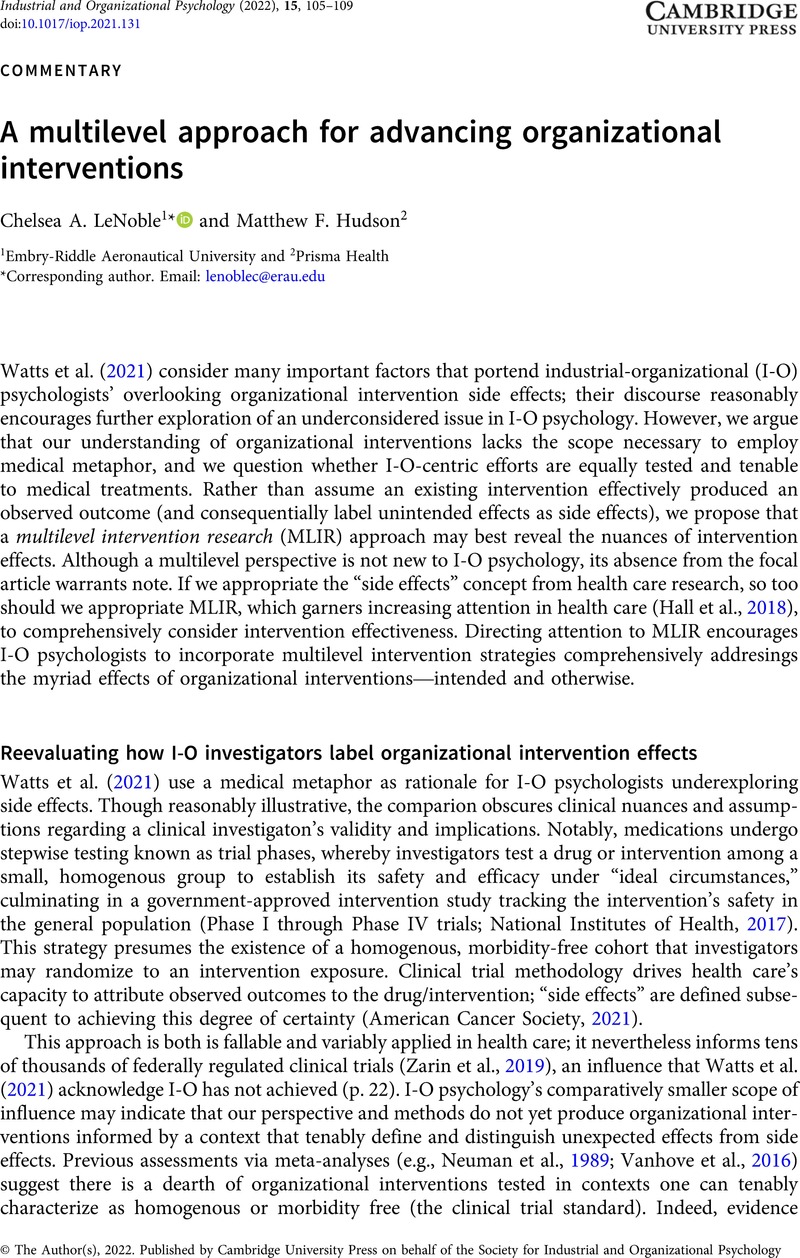Crossref Citations
This article has been cited by the following publications. This list is generated based on data provided by Crossref.
Hernaus, Tomislav
Potočnik, Kristina
Lira, Eva M.
and
LeBreton, James M.
2024.
Multilevel empirical research: A call for more mixed-methods approaches.
European Management Journal,
Vol. 42,
Issue. 4,
p.
452.
Cao, Chunhua
Wang, Yan
and
Kim, Eunsook
2025.
Multilevel Factor Mixture Modeling: A Tutorial for Multilevel Constructs.
Structural Equation Modeling: A Multidisciplinary Journal,
Vol. 32,
Issue. 1,
p.
155.



